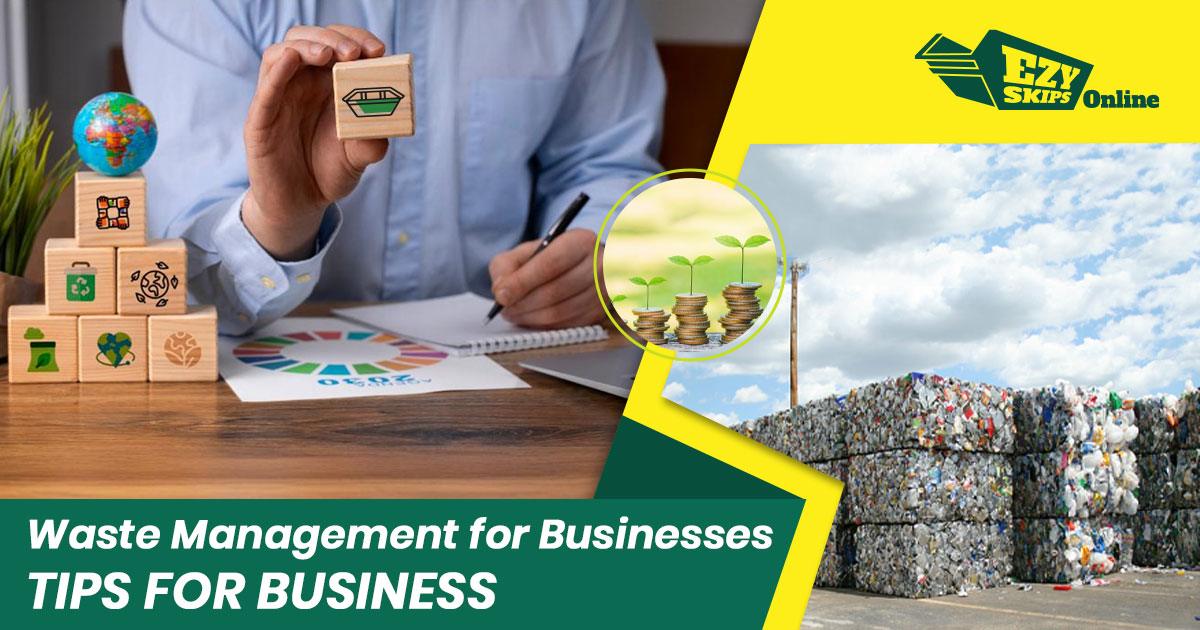
Hello, business owners and managers! Let’s talk about something that might not be the most exciting topic but is very important for your business and our environment: waste management.
Don’t worry; we will keep this simple and useful.
Why Should You Care About Waste Management?
The first position about business waste management, which is not merely a green issue—although that is a big part of it—is also about the following:
- Saving money: Less frequent wastes mean less money spent on its disposal.
- Obeying the law: There are legislations on how businesses deal with waste, and you do not want to mess with the law.
- Appealing to customers: Individuals like businesses that are concerned with the environment.
The Basics: Who’s in Charge of Waste Rules?
The rules about waste come from different levels of government in Australia. The big picture stuff is provided by the federal government, which has a plan that talks about reducing waste and recycling more.
However, nitty-gritty rules are typically provided by your state or local government. In New South Wales, for example, there is an agency called the Environment Protection Authority (EPA) that regulates how businesses handle waste.
How to Handle Your Business Waste: A Step-by-Step Guide
1. Determine Your Waste
First, know what kind of trash your business generates. Is it a lot of paper?
Food waste? Packaging?
Knowing your waste is the step to better managing it.
2. See if you can generate less waste
Once you know what waste you’re making, think about ways to make less of it. Maybe you can:
- Buy supplies that come with less packaging
- Use digital documents instead of printing everything
- Encourage staff to bring in their reusable containers for lunch
3. Reuse and Recycle
Seek opportunities to reuse items in your business. For the things you can’t reuse then consider how you can recycle them.
There’s a handy tool called Planet Ark’s recycling directory that can help you find out where you can recycle different materials in your local area.
4. Review Your Waste Contracts
If you have a business that collects your trash, check your contract. Ensure that it fits your business and meets all bylaws.
5. Have Good Waste Sorting in Place
Make good waste disposal easy for all at your workplace. Clear signage and conveniently placed bins can make a big difference to ease of sorting.
What’s In It for You?
Get it right on waste, and you can cash in these benefits:
- You may save money on waste disposal.
- You will be contributing to a cleaner environment and will appeal to customers who appreciate the same.
- You won’t risk a fine for non-compliance with waste regulations.
There is help available. You do not have to figure out how to do this all by yourself.
There is a business waste management program out there that can help. Some areas offer a Bin Trim program—where you will get advice on reducing waste and increasing recycling.
Real Talk: Why This Matters
Putting this into perspective, Australia has a big industry in the form of the waste management industry—it adds about $3.5 billion to the country‘s economy. That puts a dollar value on the importance of proper waste handling.
Every piece of trash we keep out of landfills is a win for our planet. By using a mixed waste skip bin to sort our garbage, we’re not just saving money, but also making a real difference for the environment.
Choosing the cheapest skips doesn’t mean sacrificing environmental responsibility. By properly sorting our waste, we’re reducing pollution and greenhouse gases, which leads to a healthier planet for everyone.
Make It Work in Your Business
Here are some concrete tips to get you started:
- Start small
Maybe focus on just improving the paper recycling or reducing single-use plastics in your break room. - Engage everyone
Get your whole team on board with reducing waste by clearly explaining your goals and how everyone can pitch in. Using commercial skip bins and teaching employees how to use them properly can make a big difference in your company’s environmental impact. - Track your progress
Obtain data about your amount of waste and rate of recycling. Seeing improvement can be a very powerful motivator. - Seek out local resources
Your local council offers specific programs and advice tailored for businesses in your area, ensuring you have the support you need. Just be sure to review the terms and conditions of these programs to understand how they can help you best! - Stay always updated
The practices of waste management and technologies evolve constantly. Continue to seek new ways to better manage your waste.
It doesn’t need to be a headache to manage your business waste. Breaking things down into little steps will enable you to understand what you can do to make a difference.
By using Ezi Skip Bins for your waste management, you’ll be helping the environment while also potentially saving money and boosting your business’s reputation. Remember, every little bit counts when it comes to making a positive impact!
Even small changes in how you manage waste can lead to significant benefits for your business and the environment. So why not contact us for a free consultation and get started today?
Take a look around your workspace, and see where improvements can be made. Your future self, and the environment, will thank you!

